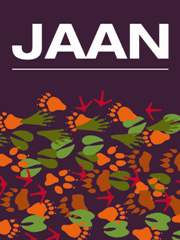Article contents
Performance, carcass characteristics and economic benefits of total replacement of inorganic minerals by organic forms in growing pig diets
Published online by Cambridge University Press: 17 October 2013
Summary
A trial was conducted using 134 pigs from weaning (21 kg) to finishing (105 kg) fed wheat-soy based commercial feeds formulated with either inorganic minerals or lower levels of organic (chelated) forms. Pigs fed the organic mineral diet has significantly higher (P < 0.05) average daily gain (ADG) compared to those receiving the inorganic control diet between day 31 and 64 of the trial period. The pigs receiving the organic minerals yielded 2 kg extra carcass weight, higher slaughter efficiency (P < 0.05) and greater ham width (P < 0.05). Economic benefits resulted for the organic mineral diets, due to improved performance and reduced mineral inclusion.
- Type
- Original Research
- Information
- Copyright
- Copyright © Cambridge University Press and Journal of Applied Animal Nutrition Ltd. 2013
References
- 1
- Cited by


